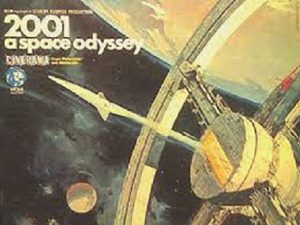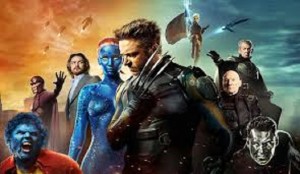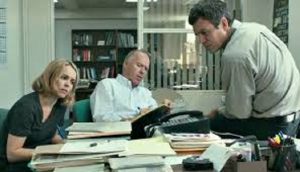2001 : A Space Odyssey and 2010: The Year We Make Contact are science fiction films with distinction, for not only their technical achievements, but for their sense of the inner quest and a spiritual hunger for more.
For tackling such subject matter makes these rare films.

The movies
Based on the Arthur C Clarke stories, he published another in 1997, 3001: The Final Odyssey, which has not been made into a film.
Clarke was a distinguished science fiction writer from Britain. He and film director Stanley Kubrick wrote the screenplay for 2001 and the film was released in 1968. In 1982, the sequel 2010 was published.
2001: A Space Odyssey (1968) is slow-burning science fiction, but enthralls or entrances with its unfolding narrative.
With news of disturbances on the moon and Jupiter, a Discovery team led by Dr. Dave Bowman, go to find out what is happening.
What happens may bewilder, but surely fascinate. The space ship Discovery’s mission becomes something other than a routine mission.
Dazzling
When Dr. Bowman is thrust into the mysterious black monolith’s ‘orbit’, we see what the monolith is made of, in a dazzling sequence that brings together the thoughts and visions of what humans seek beyond themselves. Bowman says, “It’s full of stars”.
As a bright young man said to me once, quoting a science fiction story, “expect the unexpected”.
Undoubtedly, this is about finding more beyond our parameters to encounter a spiritual truth or reality that fills the emptiness in the human condition and brings satisfaction. This could be called a turning point.
Turning points make life tick over. They are what make screenplays tick over.
The direction people take can turn over a new leaf because of an epiphany, a revelation, a new understanding, an awakening.
The belated sequel to 2001 was theatrically released sixteen years later, in 1984. (It was one of those films with several Academy Awards nominations, but left empty handed.)
2010 has its strangely fascinating moments, like when Dr. Bowman has an important message. A formerly dead Dr. Bowman says, “Something wonderful is about to happen”.
Wonderful moments like those may change lives, worlds and even universes. A satisfying turning point that is “wonderful” like this can fill human desires for that something more.
Notes:
2001: Director: Stanley Kubrick, Screenplay: Stanley Kubrick, Arthur C. Clarke Based on Clarke’s The Sentinel, Starring: Keir Dullea (Dr. Dave Bowman), Gary Lockwood (Dr. Frank Poole), William Sylvester (Dr. Heywood R. Floyd), Douglas Rain (HAL 9000), Cinematography: Geoffrey Unsworth, Stuart Freeborn—makeup.
2010: Director and Screenwriter: Peter Hyams, Based on the Arthur C. Clarke novel, Starring: Roy Scheider (Dr. Heywood Floyd), John Lithgow (Dr. Walter Curnow), Helen Mirren (Tanya Kirbuk), Bob Balaban (Dr. R. Chandra)

